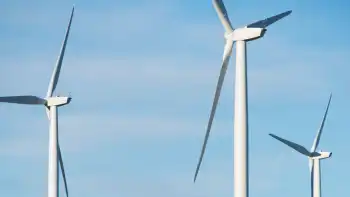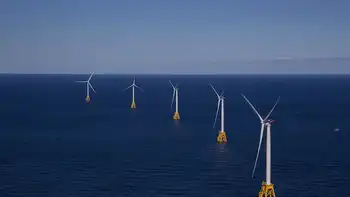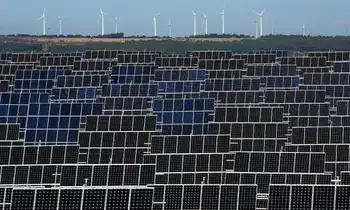Duke pursues compromise on Save-A-Watt
NORTH CAROLINA - Duke Energy Carolinas is negotiating a compromise with some principal opponents of its proposed Save-A-Watt energy-efficiency program, seeking an agreement they would jointly recommend to state regulators.
The details of the possible compromise are not clear. Individuals close to the situation say Duke is discussing a possible agreement with the N.C. Utilities Commission's public staff, the Southern Environmental Law Center, the N.C. Justice Center and the N.C. Attorney General's office.
All have opposed Save-A-Watt as proposed by Duke.
The state commission has resumed hearings on the controversial program.
Duke says the program would make efficiency a profit center for the company, putting it on near-equal footing with energy sales. The opponents involved in the negotiations have contended the company would make too much profit for too little energy conservation.
Duke has negotiated settlements with principal opponents in two other states. The S.C. Office of Regulatory Staff and Indiana's Office of Utility Consumer Counsellor – which fill the role in those states the public staff handles in North Carolina – have worked out Save-A-Watt settlements with Duke.
Company spokesman Tom Williams says the utility routinely seeks agreements with other parties in regulatory cases. He declines to comment on any negotiations in North Carolina.
Robert Gruber, executive director of the public staff, confirms negotiations are under way but he says he can't discuss any details.
He does not expect an agreement to be worked out before the hearings in Raleigh, which are scheduled to feature Duke Chief Executive Jim Rogers.
An agreement with the environmental law center would be interesting. The group declined to participate in the South Carolina settlement. And it has been the lead organization for several environmental groups that have opposed Save-A-Watt.
Sarah Rispin, one of the center's attorneys in the hearings, declines to comment. So did representatives of the justice center and the attorney general's office.
Save-A-Watt opponents Wal-Mart Stores Inc. and two N.C. industrial-customer groups are not involved in the negotiations. Also, environmental group N.C. Waste Awareness and Reduction Network isn't part of the group associated with the Southern Environmental Law Center. N.C. WARN, the N.C. Public Interest Research Group, Clean Water for North Carolina and the state's chapter of the Association of Community Organizations for Reform, held a press conference recently discussing their continuing opposition to the proposed program.
North Carolina's public staff has strongly opposed the basic Save-A-Watt model. As proposed, Save-A-Watt would dramatically change the state's regulatory approach to compensating a utility for efficiency programs.
In standard regulatory practice, utilities are allowed a rate of return on what they spend for efficiency programs. Duke proposes instead to collect a return on the costs it avoids by not having to build new power plants or buy additional power.
Duke wants to be paid 90 percent of the avoided costs for power production. That would give Duke potential earnings independent of the direct costs of the efficiency programs.
Expert witnesses for the public staff have objected on two grounds. First, the staff feels the program offers insufficient regulatory protection for the public and goes against sound regulatory practice. Second, it says Duke could profit too richly from the program.
In hearing testimony in July, Michael Maness of the public staff called Save-A-Watt "seriously flawed." He said the staff's objections would continue even if the 90 percent figure were reduced. Noting the lower percentage negotiated in Indiana and South Carolina, he said if the staff were persuaded to accept the avoided-costs model, it would want a figure substantially less than the 85 percent figure arrived at in those states.
Duke Energy Carolinas is a utility operation of Charlotte-based Duke Energy Corp. It provides power to much of the western Triangle.
Related News

Frustration Mounts as Houston's Power Outage Extends
TEXAS - Houston is enduring significant frustration and hardship as a power outage stretches into its fourth day amid a sweltering heatwave. The extended blackout has exacerbated the challenges faced by residents in one of the nation’s largest and most dynamic cities, underscoring the critical need for reliable infrastructure and effective emergency response systems.
The power outage began early in the week, coinciding with a severe heatwave that has driven temperatures to dangerous levels. With the city experiencing some of the highest temperatures of the year, the lack of electricity has left residents without essential cooling, contributing to widespread discomfort…




